How to Start a Real Estate Business in Abuja: A Complete Guide
The real estate industry in Nigeria is booming, and Abuja—the nation’s capital—is one of the most profitable locations to establish a property business. With its rapidly growing population, rising demand for housing, and influx of investors, Abuja presents incredible opportunities for entrepreneurs.
If you’ve ever wondered how to start a real estate business in Abuja, this guide will walk you through the essential steps, tips, and strategies to succeed.
1. Understand the Abuja Real Estate Market
Before jumping in, you must research the Abuja property market. Real estate in Abuja is diverse, ranging from luxury homes in Maitama and Asokoro to affordable housing in Lugbe, Kubwa, and Kuje. Commercial real estate is also thriving, with businesses, embassies, and NGOs seeking office and retail spaces.
Key questions to ask yourself include:
-
Do you want to focus on residential sales or rentals?
-
Are you interested in land sales, property development, or brokerage?
-
Who is your target market—high-income earners, middle-class families, or corporate clients?
By defining your niche, you’ll be able to position your business more effectively.
2. Register Your Real Estate Business
Legal registration is the foundation of a successful business. To operate in Abuja, you should:
-
Register with the Corporate Affairs Commission (CAC) to get a business name and legal identity.
-
Obtain the necessary permits and licenses for real estate practice.
-
Consider registering with professional bodies such as the Real Estate Developers Association of Nigeria (REDAN) or the Nigerian Institution of Estate Surveyors and Valuers (NIESV).
Proper registration builds credibility with clients and prevents legal issues down the line.
3. Build Knowledge and Expertise
To succeed in real estate in Abuja, you need more than passion—you need industry knowledge. Consider:
-
Taking courses on real estate investment, property management, and valuation.
-
Networking with experienced realtors and developers.
-
Staying up-to-date with land laws, property titles, and Abuja’s zoning regulations.
The more knowledgeable you are, the more trust you’ll earn from clients.
4. Secure Start-Up Capital
Like any business, starting a real estate company in Abuja requires funding. Your initial capital depends on whether you want to start as a real estate agent/broker, a property developer, or an investor.
Common sources of funding include:
-
Personal savings
-
Loans or partnerships
-
Investors looking to enter Abuja’s real estate market
If you are low on funds, consider starting as a broker—helping buyers and sellers connect—before moving into development or direct investment.
5. Choose Your Business Model
There are several ways to run a real estate business in Abuja:
-
Real Estate Brokerage – Earn commissions by helping clients buy, sell, or rent properties.
-
Property Development – Buy land, build houses or estates, and sell them at a profit.
-
Property Flipping – Purchase undervalued properties, renovate them, and resell for higher value.
-
Real Estate Investment – Focus on rental properties to earn passive income.
-
Property Management – Manage buildings, apartments, or estates on behalf of owners.
Choosing the right model will depend on your capital, expertise, and risk appetite.
6. Build Strong Connections and Network
Networking is one of the most powerful tools in Abuja’s real estate industry. Attend property exhibitions, investment summits, and networking events to connect with potential clients, investors, and developers.
You should also build relationships with:
-
Landowners
-
Surveyors and valuers
-
Lawyers
-
Contractors and builders
These connections will help you access opportunities, avoid scams, and close deals faster.
7. Market Your Real Estate Business
In today’s digital world, marketing is essential. To attract clients in Abuja’s competitive market:
-
Create a professional website showcasing available properties.
-
Use social media platforms like Instagram, Facebook, and LinkedIn to reach buyers.
-
List your properties on real estate marketplaces such as PropertyPro and PrivateProperty.
-
Invest in SEO (search engine optimization) to make your business rank for keywords like houses for sale in Abuja, land investment in Abuja, and real estate agents in Abuja.
-
Use offline strategies such as flyers, banners, and word-of-mouth referrals.
A strong marketing strategy ensures a steady flow of clients.
8. Focus on Integrity and Customer Service
The real estate business thrives on trust. Many investors and buyers in Abuja are cautious because of land scams and fake agents. To stand out:
-
Always provide accurate property information.
-
Ensure properties have valid titles (C of O, R of O, Deed of Assignment).
-
Be transparent with pricing and commissions.
-
Offer excellent after-sales support.
By prioritizing integrity, you will build a reputation that attracts repeat clients and referrals.
9. Leverage Technology
Real estate in Abuja is becoming increasingly digital. To stay ahead:
-
Use virtual tours and 3D property showcases.
-
Automate customer inquiries with CRM tools.
-
Run targeted Google Ads and social media campaigns.
Technology helps you scale faster and reach clients beyond Abuja, including diaspora investors.
Conclusion
Starting a real estate business in Abuja requires planning, knowledge, and consistency, but the rewards are massive. From a fast-growing housing market to high rental yields and consistent demand, Abuja remains one of the best places to succeed in real estate in Nigeria.
By registering your company, choosing a profitable model, building networks, and marketing effectively, you can establish a strong and reputable business. Above all, maintain integrity and focus on delivering value to clients—because in Abuja’s real estate market, trust is the key to long-term success.

